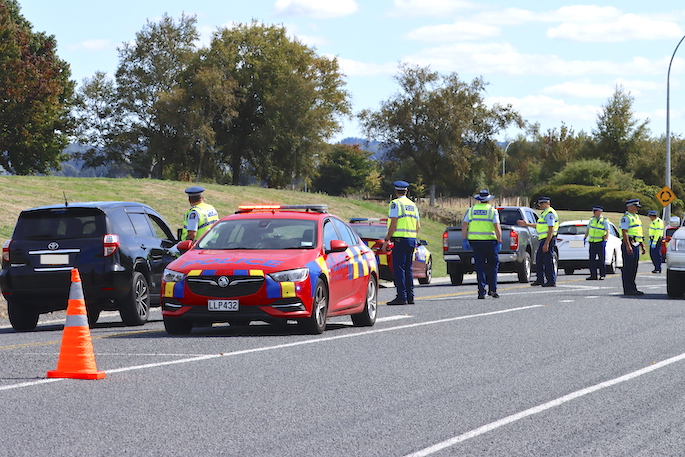Drunk drivers and drugged drivers will be heavily targeted to improve safety on New Zealand roads by the new $1.3 billon Road Policing Investment Programme RPIP (2024-2027) which was released on Sunday by Transport Minister Simeon Brown.
“Our Government is focused on improving road safety through road policing and enforcement, investment in new and safe roading infrastructure, and targeting the leading contributors to fatal crashes such as drug and alcohol impairment," says Brown.
The minister says Sunday's release of the RPIP shows a significant step up in road policing "and reinforces our commitment to ensuring there is strong enforcement on our roads to keep Kiwis travelling around our country safe".
The package includes:
- Increased alcohol breath tests with a target of 3.3 million roadside alcohol breath tests per year.
- A focus on high-risk times with a requirement that 65 per cent of breath tests are done at high or extreme alcohol risk times.
- Funding to deliver and implement roadside drug testing with a target of 50,000 tests per year once the new regime is implemented.
- Focussing speed offences on open roads and high-risk locations.
- Performance based funding to ensure targets are met.
Brown says the Government is focusing road policing on seven key areas over the next three years, targeting investment towards the highest contributing factors in fatal crashes.
“This plan has a clear focus on outcomes and has clear targets to ensure Police are focussed on the most high-risk times, behaviours, and locations," says Brown.
"The plan will ensure Police target speeding offences on high-risk roads, a clear focus on drugs and alcohol enforcement to deter impaired drivers and expects police to focus on the key times and locations where the highest risk on our roads occur."
He says alcohol and drugs are the number one contributing factor in fatal road crashes in New Zealand.
"Over 2019-2022, crashes involving drug drivers claimed the lives of an average of 105 people each year and represented around 30 per cent of all road deaths.
“The plan increases the alcohol breath testing target from 3 million tests to 3.3 million tests per year and introduces a new target for at least 65 per cent of alcohol breath tests to be undertaken during the most high and extreme alcohol risk times."
Brown says New Zealand has an inconsistent record with breath tests.
"Over the past ten years, there are only two years in which Police have conducted 3 million tests.
"Some years have delivered less than half of that number.
"We know that breath tests have a clear deterrent effect on people who risk drinking and then driving, and we are determined to see more breath tests undertaken so Kiwis are safer on our roads."
Brown says the Government has also ringfenced $20 million in the RPIP to deliver and implement roadside drug testing in New Zealand and have set targets for Police to undertake 50,000 oral fluid tests per year.
“Introducing sensible and practical enforcement targets for alcohol and drugs will help remove impaired drivers from behind the wheel and improve road safety," says Brown.
For the first time, $72 million over three years of funding that is available to Police will be used as an incentive payment to ensure performance against speed, alcohol, and drug enforcement targets.
This funding will be released based upon targets being achieved.
“Spending more money will not in itself deliver better results," says Brown.
"Despite increases in spending under the previous government the number of breath tests did not meet the target until the 2023/24 financial year.
"We are determined to turn this around and will use this programme to ensure this happens to keep New Zealanders safer on our roads."
The RPIP is an agreement between the New Zealand Transport Agency and Police and will invest a total of $1.335 billion over the 2024-27 period to deliver road policing and enforcement, of which:
- $72 million is dependent on speed and impairment enforcement.
- $20 million is provided for implementation of oral fluid testing.
The RPIP is fully funded from the National Land Transport Fund.
The $20 million for roadside drug testing will fund the procurement of an oral fluid testing device, establishment costs, and the initial rollout of this programme.
Targets are set at minimum delivery levels, recognising that any activity delivered above this makes our roads even safer.
The seven road policing operational priorities in RPIP 2024-27 are:
- Impairment, including alcohol, drugs and fatigue.
- Exceeding the speed limit.
- Seatbelts and child restraints.
- Distraction, particularly mobile phone use.
- High-risk drivers
- Commercial vehicles
- Other prevention and enforcement activities



0 comments
Leave a Comment
You must be logged in to make a comment.